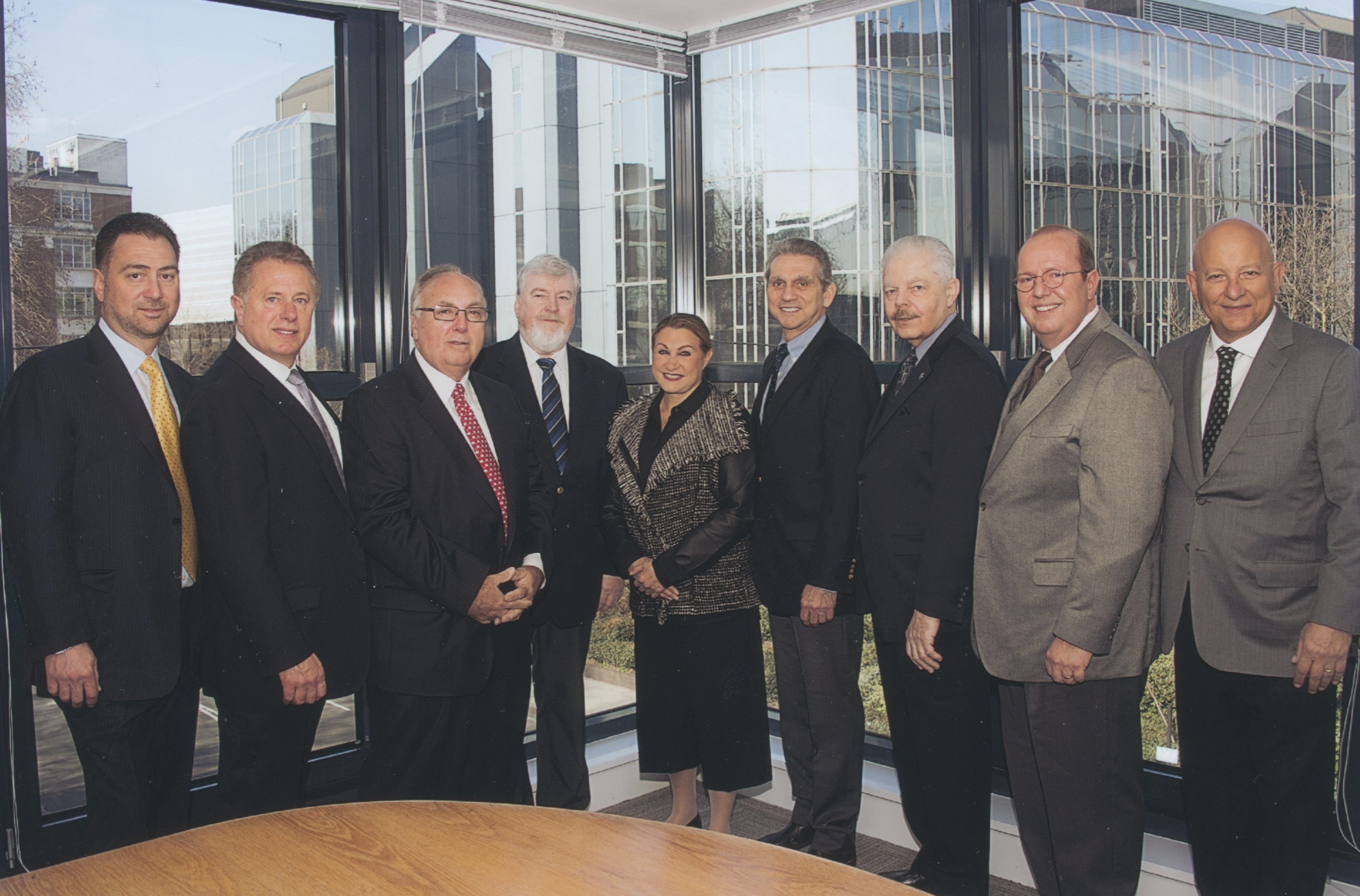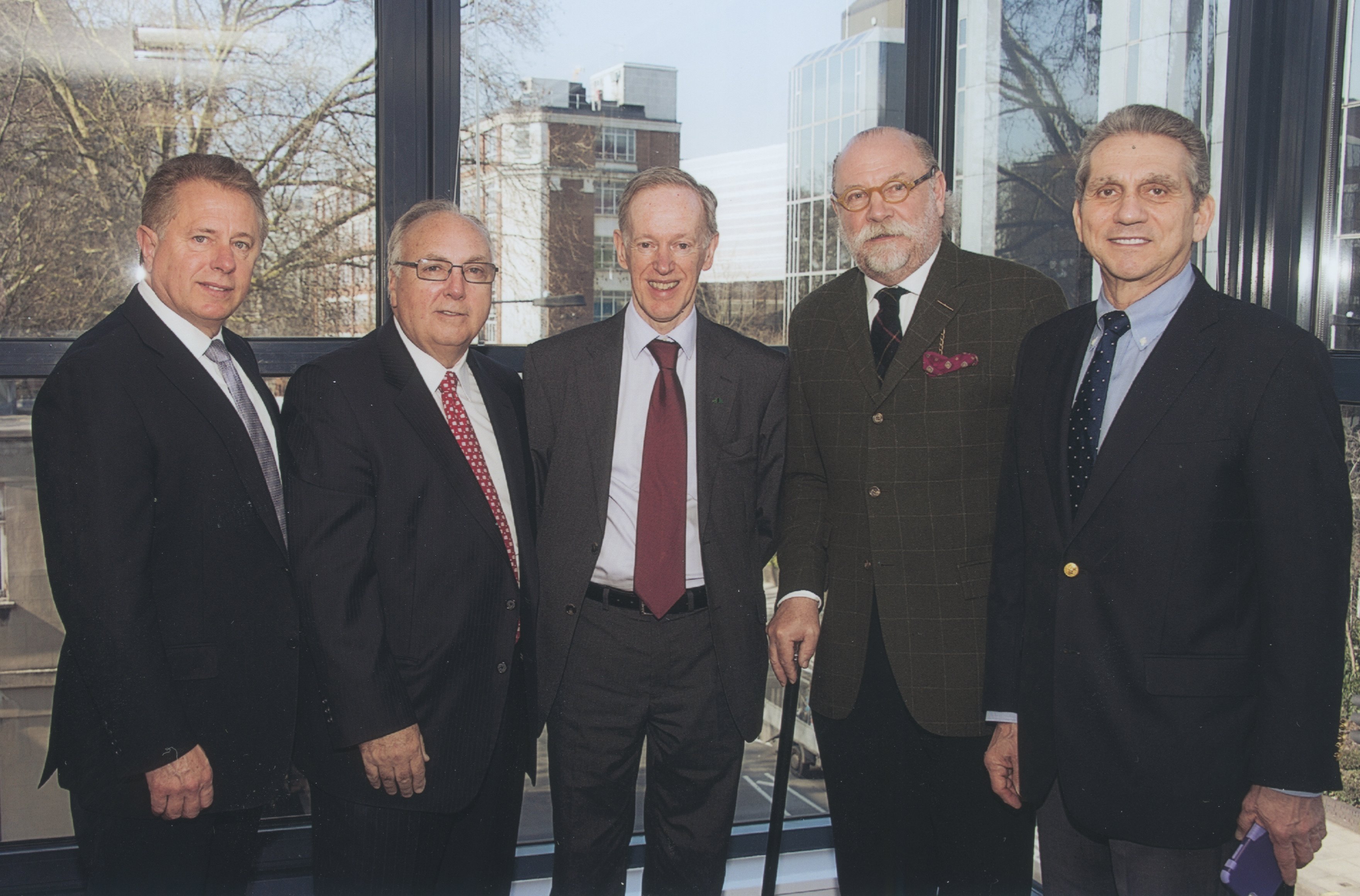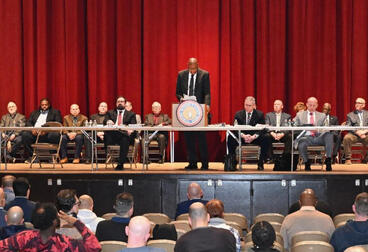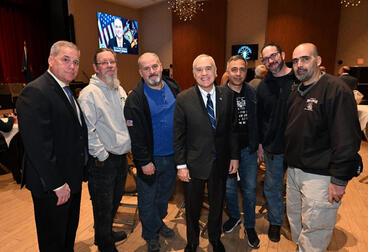 Pictured is the NYC Joint Industry Board delegation to the British JIB in England. (L to r): Steve Lazzaro president Hellman Electric, Steve Gianotti, president Arcadia Electric, Christopher Erikson, business manager Local 3, Paul Ryan, assistant business manager Local 3, Carol Kleinberg, president Kleinberg Electric, Dr. Gerry Finkel, chairman JIB, John E. Marchell, president Local 3, George Schuck, apprentice director JIB and Paul Kleinberg, V.P. Kleinberg Electric.
Pictured is the NYC Joint Industry Board delegation to the British JIB in England. (L to r): Steve Lazzaro president Hellman Electric, Steve Gianotti, president Arcadia Electric, Christopher Erikson, business manager Local 3, Paul Ryan, assistant business manager Local 3, Carol Kleinberg, president Kleinberg Electric, Dr. Gerry Finkel, chairman JIB, John E. Marchell, president Local 3, George Schuck, apprentice director JIB and Paul Kleinberg, V.P. Kleinberg Electric.
 (l. to r.): Steven Gianotti, president Arcadia Electric, Christopher Erikson business manager Local 3, Steven Brawley, CEO British JIB, Paul Corby, chairman British JIB, Dr. Gerry Finkel, chairman JIB.
(l. to r.): Steven Gianotti, president Arcadia Electric, Christopher Erikson business manager Local 3, Steven Brawley, CEO British JIB, Paul Corby, chairman British JIB, Dr. Gerry Finkel, chairman JIB.
On March 22, 2016, representatives of the Joint Industry Board paid a visit to their counterparts at the Joint Industry Board in the United Kingdom in London. The JIB of the U.K. was established in 1966, after British trade unionists met Harry Van Arsdale Jr. at an international conference. In recent years, the two Joint Industry Boards have established contact concerning educational issues and this evolved into an international apprentice exchange program between Great Britain, ourselves and last year, Australia. So when the U.K. sent their CEO and former Educational Director on a fact-finding mission to New York in July of 2012, they left with an open-invitation to our industry to visit their headquarters.
The delegation included Local 3 Business Manager Christopher Erikson; President John E. Marchell; Assistant Business å_Manager Paul Ryan and Employer representatives Stephen Gianotti, principal of
Arcadia Electric; Carol Kleinberg, principal of Kleinberg Electrical Contractors and Steven Lazzaro, principal of Hellman Electric. Also in attendance was Dr. Gerald Finkel, Chairman of the Joint Industry Board and George Schuck, Director of the Apprentice Department. The trip replicated many of the important study tours that were spearheaded by Business Manager Harry Van Arsdale Jr., which broadened our industry’s understanding of economic events and labor relations on a global scale.
At a morning meeting at the JIB headquarters, Chairman Paul Corby and CEO Steve Brawley of the British JIB explained some of the pressure on the British employers to remain competitive. Non-union employers had resorted to hiring workers under the guise of “independent contractors” which allowed them to avoid paying fair wages and benefits. Other members of their JIB explained how they were raising the profile of the Electrical Contractors’ Association, describing their installations as the “gold standard,” similar to the way our industry has been conducting an advertising campaign here. “The Right Choice” slogan and the IBEW Code of Excellence were explained by Business Manager Erikson. Training and technology issues were also discussed with the JIB and several of their contractors.
Next on the schedule, was a visit to the offices of Unite the Union where the group met with representatives of the largest trade union in Great Britain. Unite also represents the British electrical workers. Bernard McAulay, National Officer coordinated the visit which was also attended by Gail Cartmail, Assistant General Secretary. Mr. McAulay and Ms. Cartmail talked of a scandal recently uncovered by the Union in which electricians were being secretly blacklisted and one of Unite’s shop stewards explained how it worked. He noted that the Union was now in court over the allegations.
The British hosts also arranged a tour of Parliament, which was guided by Rt. Hon. John F. Spellar, one of the longest sitting members of Parliament and a Labor Party representative. Mr. Spellar also talked of his visit to Bayberryland and his memories of Business Manager Harry Van Arsdale Jr. and Local 3 President George Schuck Sr.
The visit concluded with a dinner reception at a restaurant known for its pro-Labor Party clientele. Chairman Corby and Chairman Finkel both noted that there was much in common between the two JIBs and that this had been a very productive encounter.
Business Manager Erikson concluded the event by explaining the need for international cooperation between labor and employers. Mr. Erikson called for these ties to remain strong because the anti-union forces were not limited by borders and would continue to erode the standards of work and quality of life presently enjoyed by union members and their families.

